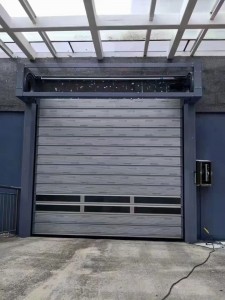There is no denying that garage doors have become an essential part of our everyday lives, keeping our vehicles and possessions safe. As technology has improved, many garage doors are now equipped with sensors, providing added convenience and security. However, a common question arises: do all garage doors have sensors? In this blog, we’ll explore the world of garage door sensors, understand why they’re important, and discover if every garage door is equipped with these innovative features.
Learn about garage door sensors:
To understand if all garage doors have sensors, we must first understand what those sensors do. In simple terms, a garage door sensor is a safety device that prevents the door from closing onto people or objects, thereby avoiding accidents and damage. They work by firing an infrared beam at the garage door opening, and if the beam is broken while the door is closing, the sensor stops the door from lowering, ultimately protecting anything or anyone in its path.
Sensors for enhanced security:
The main purpose of a garage door sensor is to ensure the safety of the door and the occupant. These sensors help prevent accidents, injuries and property damage by automatically preventing doors from closing when an obstacle is detected. This is especially important in homes with children and pets, or when objects are inadvertently left in the path of the door.
Legal requirements and building codes:
Given the security benefits, it is natural to assume that all garage doors are equipped with sensors. Here’s the problem, though: While sensors are becoming more common, all garage doors aren’t required by law to have them. Building codes and regulations may vary by region, but in many places, the installation of garage door sensors is not mandatory. Still, it’s critical to consider the safety implications and make an informed decision about whether to invest in a sensor-equipped garage door.
Factors affecting sensor installation:
There are many factors that affect the installation of garage door sensors. Budget constraints, construction schedules, and personal preferences play a large role in determining whether a homeowner chooses a sensor-equipped garage door. Also, older homes or existing garage door systems may not have regulations for installing sensors, so it’s worth consulting a professional to explore the possibilities.
Upgrade your garage door:
If your current garage door doesn’t have sensors and you feel the need to enhance its security features, you have options. Many garage door manufacturers offer retrofit kits that integrate sensors into existing doors. These kits can be installed by professionals and provide the added security benefits associated with sensors without having to replace the entire door.
in conclusion:
While garage door sensors have undeniable safety benefits, the installation of these devices is not universal. Homeowners must assess their individual needs and consider investing in sensor-equipped garage doors accordingly. If your garage door doesn’t have sensors, retrofit kits are available for added security.
Ultimately, the decision to use a garage door sensor depends on a variety of factors, including legal requirements, budget constraints, and personal preference. However, in an age where safety is paramount, it’s worth considering the extra peace of mind that sensors provide. Investing in garage door security can be one of the smartest decisions you can make for your home and family.
Post time: Jul-19-2023

